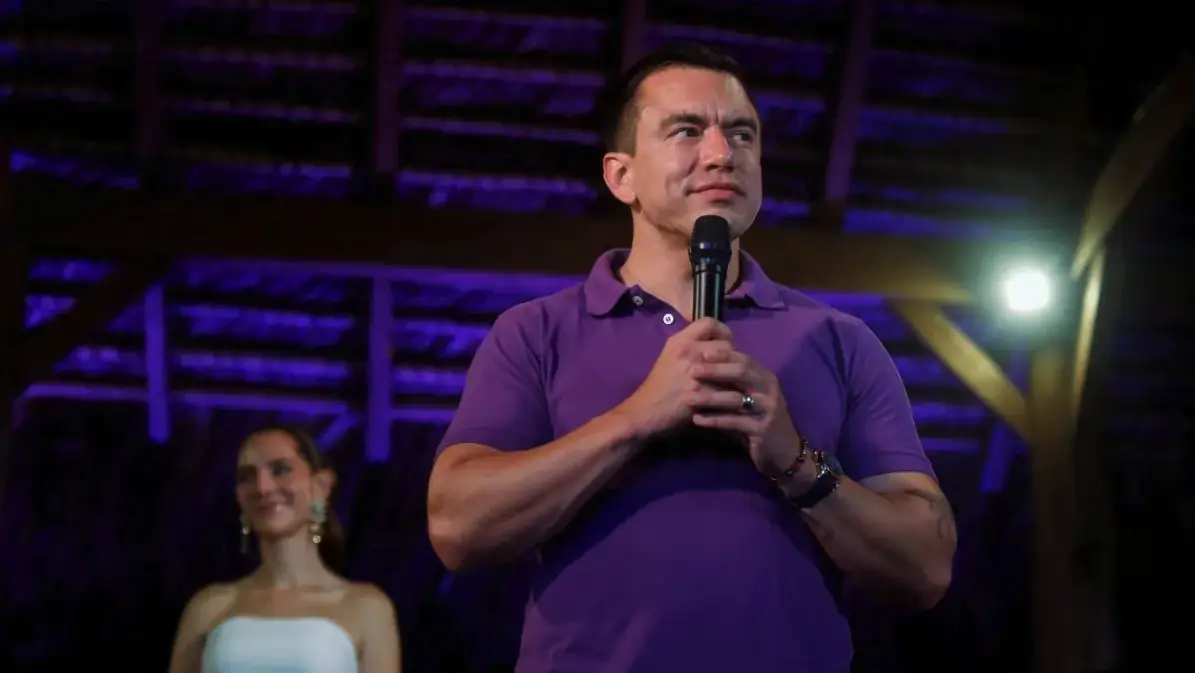All predictions were wrong, as polls in the days leading up to the vote had shown a very narrow margin of advantage for either candidate, Daniel Noboa or Luisa González. The final results reveal a regional divide that has been evident in the last three electoral contests. It seems that the Coast, the Highlands, and the Amazon regions experience politics and express preferences in distinct ways. There is no regional balance, and this poses a challenge for governance and dialogue between regions.
In this election, Ecuador had the highest number of international observers, including the Electoral Mission of the European Union (EU), the United Nations, and Parlatino, among the most prominent. Additionally, each party had its own poll watchers, totaling nearly 40,000—a figure unprecedented since the transition to democracy in 1979. For the first time, the Army also called up reservists to help safeguard order and security.
President-candidate Daniel Noboa secured victory with a margin of approximately 10 points, with over 90% of the votes counted. This marks the third consecutive presidential election loss for correísmo, despite winning significant representation in the Assembly, positioning it as the main opposition force. The National Electoral Council (CNE) congratulated the winning ticket, stating that the trend was irreversible at 90% of the vote count.
The correísmo candidate, Luisa González, did not concede defeat in these terms: “Thank you for your strength and loyalty… Here I stand before my people… I want to be very clear: RC has acknowledged a defeat before, but today we do not recognize these results… On behalf of the people we represent, we do not recognize the results from the CNE (National Electoral Council)… I refuse to believe that the people prefer violence to lies. We will request a recount and demand that the ballot boxes be opened.”
As background, leftist groups, parties, movements, and collectives supported the candidacy of Luisa González, heir to the Citizens’ Revolution, but it was not enough to secure victory. Daniel Noboa, meanwhile, capitalized on historic anti-correísmo sentiment and promoted a vision of new politics rooted in his youth and that of his cabinet. These perspectives framed the campaign as a narrative battle between the prosperity of the old days promoted by Rafael Correa and a new Ecuador confronting organized crime with a firm hand and rejecting the old political order.
The election marked the end of a campaign characterized by attacks, limited public debate, and the flood of fleeting messages on social media that turned politics into spectacle. The debate failed to clarify doubts and instead generated rejection among undecided voters due to the lack of clear proposals. The tight margin fueled an atmosphere of speculation promoted by both campaigns. Allegations of potential fraud and even calls to defend democracy by any means were not absent.
Within this context, the new government faces severe and interconnected problems: political polarization, low interpersonal and institutional trust, insecurity and violence, poor economic performance, unemployment, and corruption. Additionally, it must now navigate a reconfiguration of international forces due to Donald Trump’s trade measures, anti-terrorism policies, and migration agenda—and, as a consequence, the international community’s responses and repercussions.
The reconstruction of the social fabric is one of the most important challenges for the new government. According to Latinobarómetro, only one in ten people trusts their fellow citizens. The election has further fueled this phenomenon, intensifying an unprecedented political polarization. Building a shared national identity will take time and be marked by setbacks. The same applies to institutions, which are poorly rated, with a declining trend in public trust toward the justice system, the Assembly, and political parties recently.
The need for reconciliation could provide the new government with political capital to implement a national policy against transnational organized crime, which operates within the country and controls local criminal gangs. However, public support alone will not suffice, as major negotiations must take place in the Assembly, where the two main blocs—Citizens’ Revolution from correísmo and ADN from the current president—hold an equal number of legislators. Navigating this context will be a trial by fire for the new administration.
On the economic front, the two main challenges are job creation and strengthening dollarization. The relationship with the business sector will be key in defining the rules of labor contracting. Much will depend on exports, increasing foreign direct investment—which is currently the lowest in the region—remittances from migrants, which are immediately affected by Donald Trump’s policies, and loans from multilateral credit institutions.
Adding to this are urgent demands from provinces in the Coast and Highlands, which are facing one of the most devastating winters in the past decade, as well as environmental remediation in the province of Esmeraldas due to an oil spill, for which no responsible parties have yet been identified.
A new political cycle begins in Ecuador with the expectation that the President will continue in office without the pressure of an ongoing campaign.
*Machine translation proofread by Janaína da Silva.













